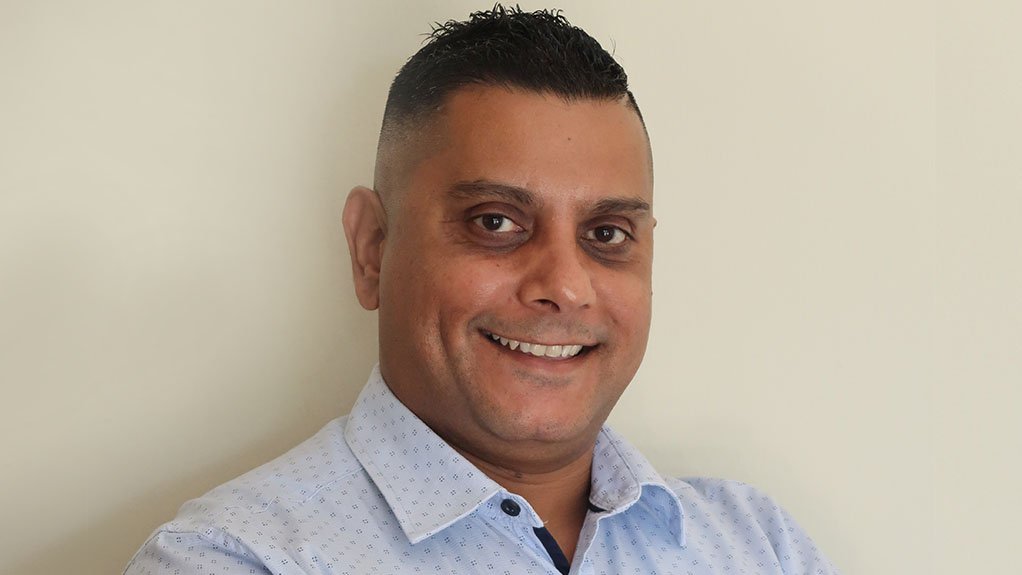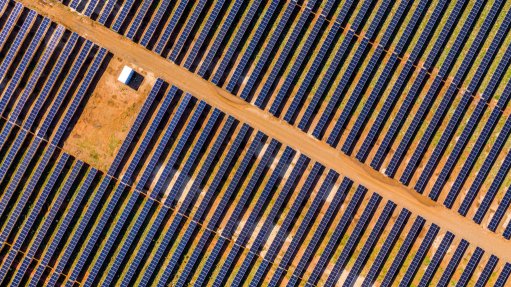Drive to develop EV manufacturing launched


VIREN SOOKHUN Oxyon is also looking at creating training programmes for people, especially the youth, who have never worked in the automotive manufacturing industry before to make an entry into EV manufacturing
Recruitment and upskilling specialists Oxyon People Solutions has instituted a national drive to promote the advantages of developing local electric vehicle (EV) manufacturing facilities, including a push for temporary employment services workforce readiness and upskilling curriculums through the relevant sector education and training authorities (Setas).
South Africa has numerous, well-established internal combustion engine (ICE) manufacturing production lines that could, if done correctly, be converted to EV lines relatively easily, says Oxyon People Solutions MD Viren Sookhun.
The country’s strengths present a “compelling argument” for the manufacture of EV vehicles as evidenced by original-equipment manufacturers (OEMs) Mercedes-Benz, Nissan, Ford and BMW extending their production facilities in Pretoria, Gauteng and the Eastern Cape, he adds.
One of the challenges in transitioning from ICE to EV manufacturing is that the latter requires different skillset.
“Consequently, EV manufacturers will have to either upskill their staff or hire new people who have been upskilled to work on EV production lines,” he says, adding that the net effect will be more job creation.
Sookhun highlights that Oxyon People Solutions can facilitate and execute employer-centric solutions – from sourcing the most suitable candidates, interviewing and screening them, to placement and training. These solutions include unskilled labour.
“We can also assist in obtaining government funding from the relevant Setas for our clients.”
He stresses that, for clients to qualify for funding from the Setas, viable information on future demand, uptake rates and projections for the next five years would need to be presented.
Sookhun enthuses that the manufacture and demand for EVs “looks great for 2030”, by which time Europe is expected to reach a high adoption rate.
According to Naamsa – The Automotive Business Council, 40% of all new-vehicle sales in Europe will be EVs by 2030, and this figure is expected to double to 80% by 2040.
The global knock-on effect will also result in a healthy increase in demand locally for EVs towards 2030 and beyond, with government likely to be keen on funding skills programmes for the sector, he notes.
Global Investment
Sookhun lauds the UK government’s announcement last month of its making R3.7-million available to upskill the local EV sector, as such investments will “greatly boost” the development of the EV sector and its skilled workers.
Oxyon People Solutions is sourcing technical and vocational education and training (TVET) colleges to run the kind of programmes that are being designing, while it is also identifying the specific skills required to upskill the workforce to transition to EV manufacturing.
“We are also looking at creating training programmes for people, especially the youth, who have never worked in the automotive manufacturing industry before to make an entry into EV manufacturing,” he enthuses.
Although funding from the Setas is paramount, Oxyon People Solutions also hopes to encourage the private sector to come onboard in other areas.
Having private-sector buy-in will expose those participating in the training programmes to gain real-world experience in a working environment.
However, to “open the door” for automotive manufacturers, a better policy framework regarding EV manufacturing must be developed, Sookhun notes.
Further, locally established global OEMs must be invited to showcase South Africa as the ideal destination for manufacturing EVs.
“We have an ideal climate, transport infrastructure, and a productive labour force supported by solid labour legislation, all of which should be enough as an incentive,” he enthuses.
Further, South Africa must also continue to create special economic zones or tax-free zones as additional incentives to set up manufacturing plants and export globally.
However, showcasing the country as the ideal destination for EV manufacturing cannot be done in silos, says Sookhun, adding that collaboration among all stakeholders will be fundamental in the EV shift.
“This includes government, with its role in policy direction; the education sector, with funding from the Setas and training by the TVET colleges; and private-sector organisations such as the Development Bank of Southern Africa and the Industrial Development Corporation.”
He adds that the aim is not just to create not jobs but sustainable job opportunities that will enable individuals in entry-level positions to progress to management level or even beyond.
“The biggest competitor to EVs is fuel cell- or hydrogen-powered cars,” says Sookhun, noting that it is estimated that, by 2050, most vehicles, including trains and aeroplanes, will use helium- and hydrogen-powered engines.
“South Africa cannot fall behind on the development of automotive technologies and must keep with global trends and materials,” he concludes.
Article Enquiry
Email Article
Save Article
Feedback
To advertise email advertising@creamermedia.co.za or click here
Comments
Announcements
What's On
Subscribe to improve your user experience...
Option 1 (equivalent of R125 a month):
Receive a weekly copy of Creamer Media's Engineering News & Mining Weekly magazine
(print copy for those in South Africa and e-magazine for those outside of South Africa)
Receive daily email newsletters
Access to full search results
Access archive of magazine back copies
Access to Projects in Progress
Access to ONE Research Report of your choice in PDF format
Option 2 (equivalent of R375 a month):
All benefits from Option 1
PLUS
Access to Creamer Media's Research Channel Africa for ALL Research Reports, in PDF format, on various industrial and mining sectors
including Electricity; Water; Energy Transition; Hydrogen; Roads, Rail and Ports; Coal; Gold; Platinum; Battery Metals; etc.
Already a subscriber?
Forgotten your password?
Receive weekly copy of Creamer Media's Engineering News & Mining Weekly magazine (print copy for those in South Africa and e-magazine for those outside of South Africa)
➕
Recieve daily email newsletters
➕
Access to full search results
➕
Access archive of magazine back copies
➕
Access to Projects in Progress
➕
Access to ONE Research Report of your choice in PDF format
RESEARCH CHANNEL AFRICA
R4500 (equivalent of R375 a month)
SUBSCRIBEAll benefits from Option 1
➕
Access to Creamer Media's Research Channel Africa for ALL Research Reports on various industrial and mining sectors, in PDF format, including on:
Electricity
➕
Water
➕
Energy Transition
➕
Hydrogen
➕
Roads, Rail and Ports
➕
Coal
➕
Gold
➕
Platinum
➕
Battery Metals
➕
etc.
Receive all benefits from Option 1 or Option 2 delivered to numerous people at your company
➕
Multiple User names and Passwords for simultaneous log-ins
➕
Intranet integration access to all in your organisation



















